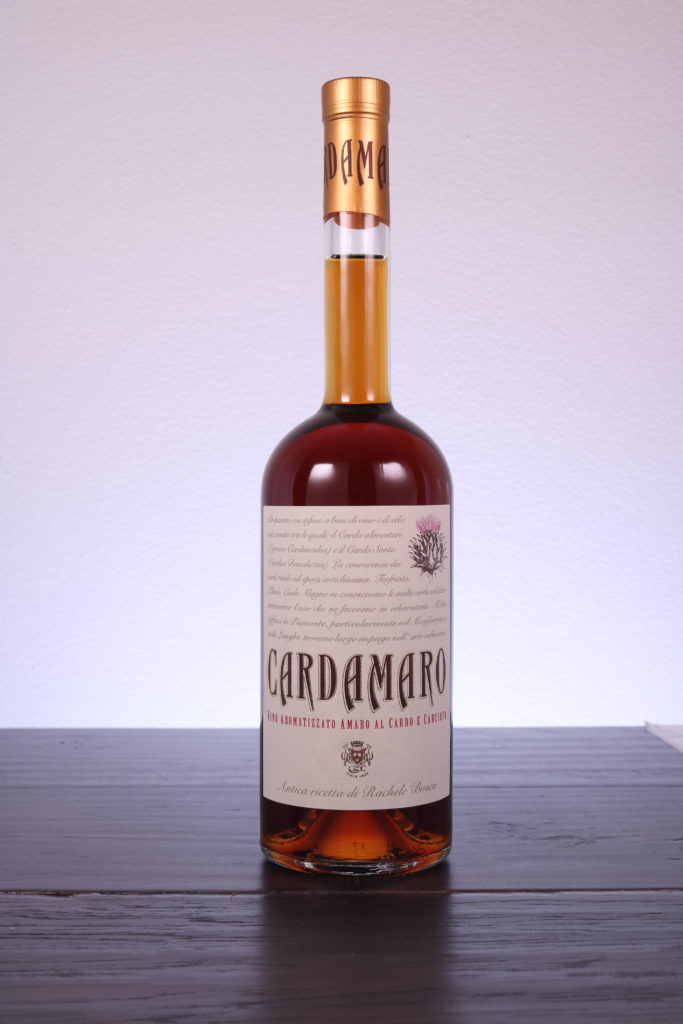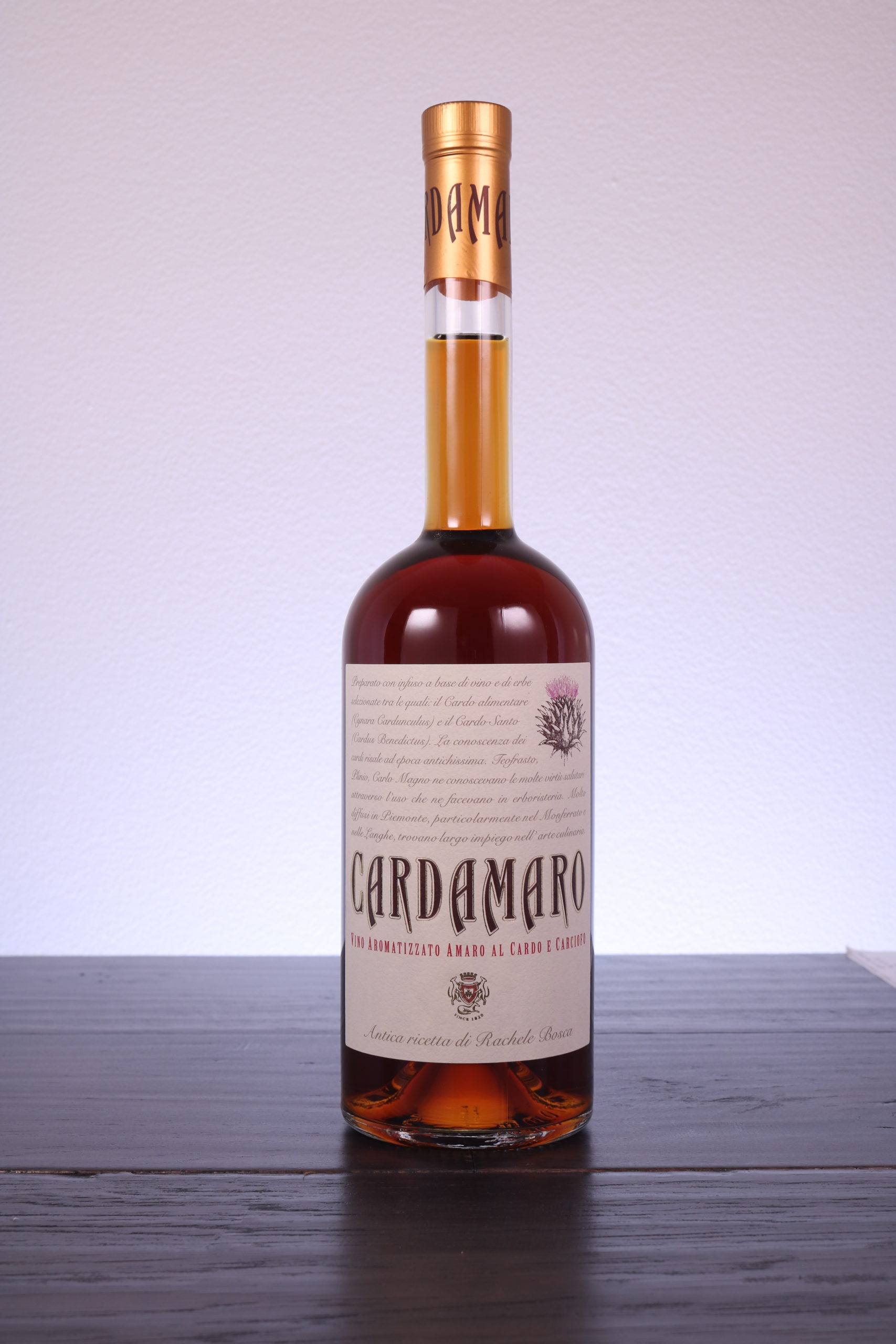
You’d be forgiven for seeing Cardamaro and assuming it was a cardamom flavored liqueur. In fact, this wine based amaro is based off relatives of the artichoke (cardoon and blessed thistle). This gives it an herbal background and plenty of spicing rounds it out. As it’s wine based, it’s more acidity forward, making it a great option for cocktails that traditionally use amaro or vermouth. Be aware, as Cardamaro is a wine based Amaro, it will last 4-6 weeks in your fridge after you open it.
Cardamaro
Sight: A walnut like brown, a solid core and lighter cherry wood notes around the edges.
Smell: Dates and cardamom lead the way with touches of brown sugar, caramel, and herbal components come through. The nose is sweet and soft, with a vermouth like quality.
Sip: Spicy notes bursts forth with plenty of cinnamon and herbal notes with hints of cardamom. Brown sugar notes fill in the gaps and touches of dates, orange pith, golden raisins, and tea.
Savor: The finish disappears quite quickly, but the hints of spice and tannin linger.
Cardamaro is a beautiful, sweet, herbal, subtly earthy and well balanced amaro. The flavors here aren’t as bold as a Cynar or Ramazzotti, making it more accessible to those with more bitter sensitive palates. The subtle sweetness make it a decent sipper, and a the wine based acidity makes it good for cocktails that might be stirred and don’t benefit from lemon or lime.
In Cocktails
Making a Midnight Mass from Death & Co’s wonderful cocktail book, I was able to see how Cardamaro played with rum and Benedictine. The fruitiness of the rum was toned down as the brown sugar and spice notes of the Cardamaro came forward. A touch of heat but the herbal flavors and spice from the benedictine allowed the Cardamaro to play a solid background role. Overall it was pleasant, and the orange helped accentuate it.
Cardamaro Cocktails:
*Please note – this is an affiliate link that helps us keep running First Pour Cocktails! We hope you enjoy the book, we know we have, and appreciate your support!

One thought on “Cardamaro”